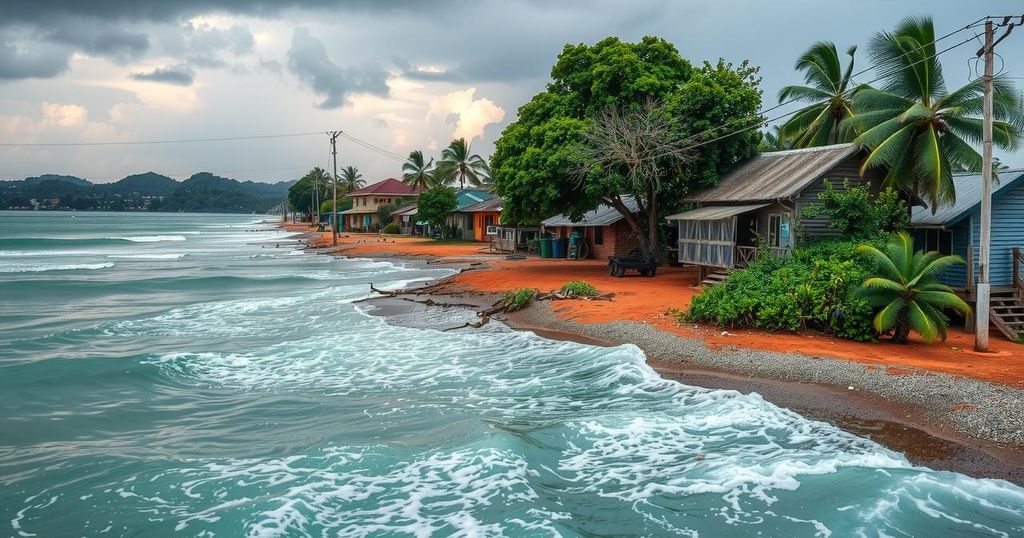Cyclone Chido has caused extensive damage in northern Mozambique, displacing thousands and signaling a troubling trend of climate change-driven storms in southern Africa. With increased cyclone frequency, humanitarian needs rise, emphasizing the importance of preparedness and international support for recovery efforts.
Cyclone Chido has wrought extensive destruction across northern Mozambique, moving from the east African coast after impacting the French Indian Ocean island of Mayotte on December 15. Thousands have been displaced in the provinces of Cabo Delgado and Nampula. This cyclone is part of a concerning trend of increasingly severe weather events in southern Africa, suggesting a link to climate change. Major storms in recent years, including Cyclone Freddy and Cyclone Idai, illustrate this growing threat to the region.
Lucy Mtilatila, Director of Climate Change and Meteorological Services in Malawi, emphasized that climate change has significantly escalated the frequency of cyclones. What once occurred roughly every decade is now happening with alarming regularity. Cyclone Chido produced winds reaching 260 km/h (160 mph) and substantial rain totals, exacerbating the humanitarian crisis in an already vulnerable area. Children and communities face the risk of long-term consequences, including loss of educational opportunities and healthcare access, as noted by UNICEF representative Guy Taylor.
In response to Cyclone Chido, emergency shelters have been established for approximately 2,800 displaced people in Pemba. However, infrastructure damage assessment remains incomplete due to ongoing power outages. The need for adequate food supplies and reliable infrastructure is critical, especially since the regions are still recovering from previous cyclones. Mtilatila remarked that while emergency preparations improved since past cyclones, the burden on communities remains high due to the cumulative effects of these disasters.
Preparedness measures initiated by the Malawian government ahead of Cyclone Chido included preemptive orders for food and relief supplies. As the impacts of climate change become more pronounced, calls for greater international assistance are increasing. Mtilatila stated that reinforced strategies must focus on resilience building and improving farming practices to better withstand future climatic events. The collective goal remains to emerge from these disasters stronger and more capable of facing subsequent challenges.
Overall, the intensifying cyclone activity in Southern Africa serves as a clear reflection of climate change’s impact on weather patterns, necessitating a reinforced cooperative approach to disaster management and sustainability practices across Mozambique and Malawi.
Recent cyclones in southern Africa, particularly Cyclone Chido, have highlighted the escalating impacts of climate change on weather patterns in the region. The increased frequency and intensity of storms such as Cyclone Freddy, Gombe, and Idai present significant challenges for humanitarian response and community recovery efforts. The region’s vulnerability to both natural disasters and the direct consequences of climate-related disruptions compound existing socio-economic challenges, including food insecurity and health risks.
In summary, Cyclone Chido exemplifies the growing severity of climate-related disasters affecting Mozambique and Malawi, amplifying existing vulnerabilities of the communities. The regional response has improved, yet challenges persist, notably in rebuilding infrastructure and ensuring food security. Ongoing support and robust disaster preparedness strategies are vital for enhancing resilience and safeguarding the livelihoods of those impacted by climate change. The need for urgent global action against the driving forces of climate change has never been clearer.
Original Source: www.dw.com






